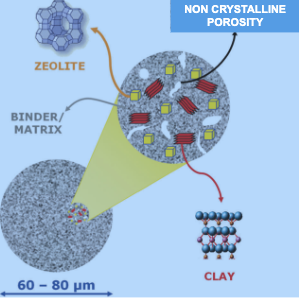Abdulmajeed Al Katheeri - ADNOC Refining, Research Centre Division

Loss of catalytic activity and selectivity over time is a big problem with great concern at current catalytic refining (FCC-RFCC) process units. In order to maintain the catalytic activity, a big addition of a catalyst is needed every day, which is expensive for refiners. Hence, looking for new catalysts and their evaluation under laboratory level research are essential. In order to bring the fresh catalysts into E-Cat, we developed a protocol for catalytic deactivation.
In order to evaluate the catalytic activity of commercial catalysts from various manufacturers, the fresh catalysts should be deactivated artificially by metallation technique to approximate properties of E-Cat as in real operating conditions. Fresh commercial catalysts were subjected to CMD (Cyclic Metal Deactivation) artificially by injecting a known amount of metal naphthenates. CMD was repeated for 45 cycles and each cycle consists of cracking, stripping and regeneration.
 Abdulmajeed Saleh Al Katheeri graduated in 2009 as a chemical engineer. He has 10 years experience in refining. He is currently working as a senior engineer for the evaluation of RFCC catalysts in ADNOC R&D labs.
Abdulmajeed Saleh Al Katheeri graduated in 2009 as a chemical engineer. He has 10 years experience in refining. He is currently working as a senior engineer for the evaluation of RFCC catalysts in ADNOC R&D labs.






